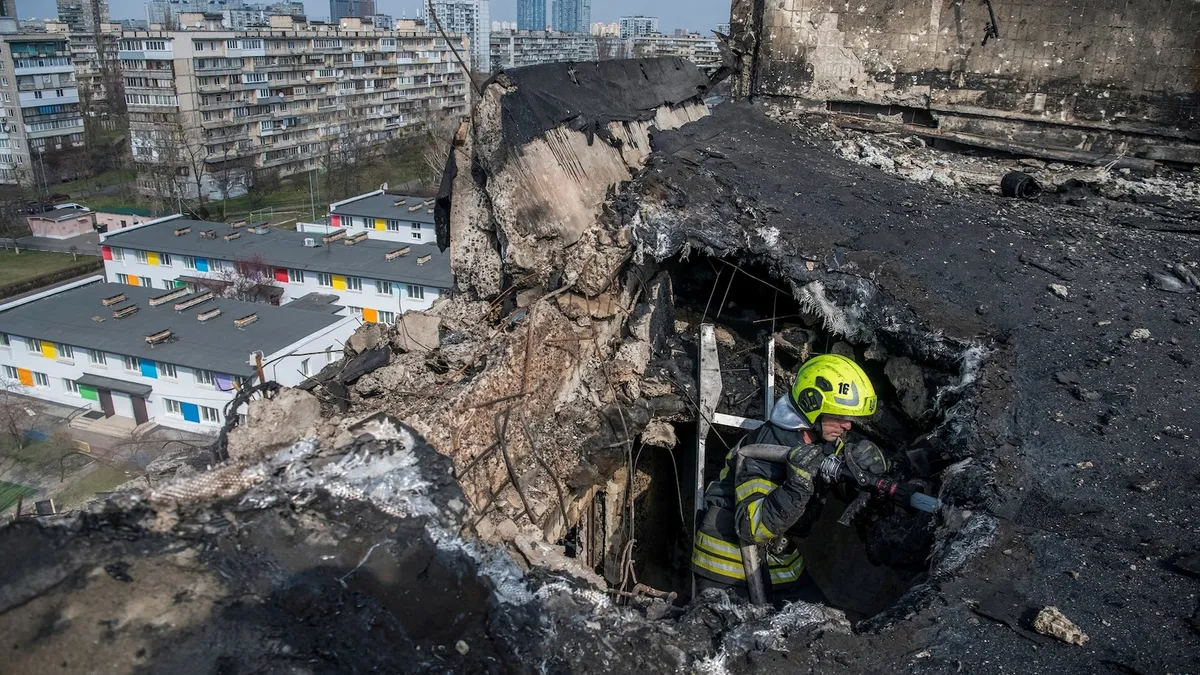
In a significant development regarding the ongoing conflict in Ukraine, American and Russian negotiators are scheduled to meet again in Saudi Arabia on Monday. This meeting is part of the White House's continued efforts to advocate for a ceasefire and a comprehensive peace deal aimed at ending Russia's three-year war on Ukraine. Among the key issues on the agenda is a proposed pause on strikes targeting energy infrastructure, a plan that has garnered preliminary support from both Russian President Vladimir Putin and Ukrainian President Volodymyr Zelenskyy.
According to reports from Russia's state-run Tass news agency, the American and Russian teams commenced their closed-door discussions in Riyadh on Monday morning. Steve Witkoff, who served as President Donald Trump's Middle East envoy and has played a pivotal role in dialogues with both Moscow and Kyiv, expressed optimism about the negotiations. In an interview with Fox News, Witkoff emphasized that the president's philosophy of "peace through strength" encourages communication and fosters the potential for successful peace deals. "I'm not sure how anyone would expect an end to a conflict when you're not communicating," he stated.
This U.S.-Russia meeting follows a prior engagement between American and Ukrainian teams in Riyadh on Sunday. President Zelenskyy reported that he received a briefing on the discussions from Defense Minister Rustem Umerov, describing the dialogue as "quite useful." However, Zelenskyy stressed the importance of pressing Putin to issue a definitive order to halt the ongoing strikes. "The one who brought this war must be the one to take it back," he asserted, referring to Moscow's relentless missile and drone assaults on Ukraine.
As the negotiations unfold, Witkoff's remarks have raised alarms in Ukraine and beyond, particularly regarding the Trump administration's perceived alignment with misleading Russian narratives. During an interview, Witkoff discussed the regions of Ukraine that have been partially occupied and claimed by Russia since 2022—namely Donetsk, Luhansk, Zaporizhzhia, and Kherson—as well as Crimea, which was annexed in 2014. He claimed that these areas are predominantly Russian-speaking and referenced referendums that purportedly indicated a desire for Russian governance. However, these referenda have been widely criticized by Western nations and international organizations as fraudulent and illegitimate.
In September 2022, former Secretary of State Antony Blinken firmly stated that the U.S. would never recognize any claims to sovereignty by Russia over parts of Ukraine seized by force. Witkoff also highlighted the relationship between Trump and Putin, mentioning that Putin expressed concern for Trump following an assassination attempt in July 2024. "This is the kind of connection that we've been able to reestablish through a simple word called communication," Witkoff commented, adding that he does not consider Putin a "bad guy."
These statements have provoked strong reactions from Ukrainian officials. Oleksandr Merezhko, a member of the Ukrainian parliament and chair of the foreign affairs committee, criticized Witkoff's remarks as "absolutely unacceptable." He questioned whether Witkoff was acting as the American president's envoy or as Putin's representative. Merezhko urged Trump to publicly disavow Witkoff's statements, which he deemed dangerous.
As the negotiations proceed, the Kremlin has indicated that challenging discussions lie ahead. Russian spokesperson Dmitry Peskov remarked that they are "only at the beginning of this path." Meanwhile, cross-border drone attacks have persisted, with Ukraine's air force reporting that Russia launched 99 drones into Ukrainian territory, of which 93 were intercepted or lost without causing damage. The Russian Defense Ministry reported that 28 Ukrainian drones were shot down as they entered Russian airspace.
This ongoing dialogue between the U.S. and Russia is critical in shaping the future of peace in Ukraine, as both sides seek to navigate a complex landscape marked by historical tensions and ongoing conflict.